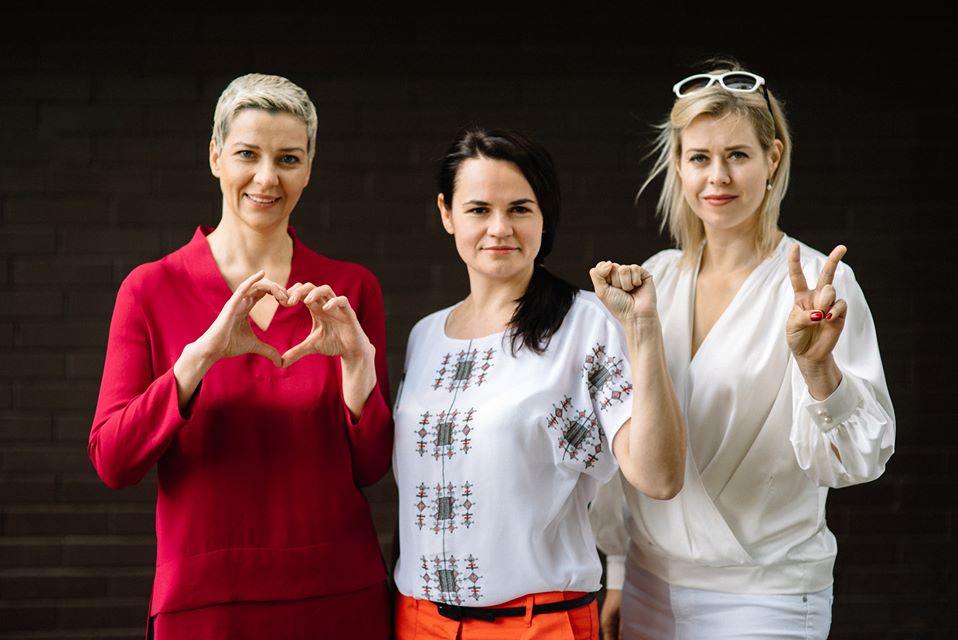Candidates screening, repressions, and a merger of Tsikhanouskaya, Babaryka and Tsepkala HQs
 The situation has not changed
The situation has not changed

By Valeria Kostyugova
Last week, the Central Electoral Commission registered five presidential candidates. Among rating leaders, only Sviatlana Tsikhanouskaya was registered. Babaryka and Tsepkala HQs announced a merger with Tsikhanouskaya’s HQs. The registered candidates started campaigning. The crackdown on election participants has broken the 2010 elections record.
Candidates’ registration
On July 14th, the Central Election Commission (CEC) registered five candidates, leaving only 25 days for campaigning. Babaryka was eliminated from the race with a reference to the State Control Committee letter and Tsepkala – due to the non-validation of more than half of signatures submitted to the CEC for the nomination. Hence, Tsikhanouskaya, Dzmitryeu, Cherechen, Kanapatskaya, and the incumbent president have become presidential candidates. Dzmitryeu, when collecting his registration certificate, stated that when authorities refused to register Babaryka and Tsepkala when they arrested Babaryka and Tsikhanouski and their team members, they, shifted the election focus onto the struggle between the authorities and the people. He also urged the authorities to release political prisoners and requested the CEC head, Yarmoshyna, to withdraw her complaint against Siarhei Tsikhanouski, which became a basis for additional criminal charges against him. Finally, he promised to hold new fair elections if he wins.
Repression
On July 14th, thousands protested non-registration of Babaryka and Tsepkala as presidential candidates across the country until late in the evening, regardless of mass arrests and use of force against protesters. Some 250 people were detained. There were clashes between protesters and the police. The police and riot police also detained media representatives. On July 15th, law enforcement launched criminal proceedings in connection with the events in Minsk the day before (gross violation of public order).
On July 15th, Belarusians responded to appeals by Babaryka’s HQs and queued up to the CEC to file appeals against the non-registration of Babaryka, forming a long queue in the Minsk center. After 7 p.m., the CEC offices closed so did the main post office (usually open until 11 p.m.) and another 24hour post office. The riot police started detaining people, including random passers-by, immediately after the closure. Overall, some 300 people were detained last week.
In total, as of May 8th, more than 1100 people were arbitrarily detained in Belarus and 25 were recognized as political prisoners, including Siarhei Tsikhanouski, Viktar Babaryka, his son Eduard Babaryka, bloggers, and election HQ members.
Human rights defenders have noted the unprecedented violence during the 2020 presidential campaign and unprecedentedly discriminatory conditions for participation.
Campaigning
Candidate Dzmitryeu held the first legal appearance (a picket) during the campaigning stage by standing in a pond in a remote and small park in Minsk, which was one of the six designated places for campaigning. In small settlements campaigning grounds have not been designated at all. All places designated for campaigning are far from crowded places. The authorities aspire that such an approach would make the campaign as low-profile as possible. What is more, Dzmitryeu, for example, was allowed to campaign in Rechytsa and Homiel only between 8 and 10 a.m. in designated places.
The merger between electoral HQs of Tsikhanouskaya, Babaryka, and Tsepkala (under Tsikhanouskaya’s HQs) has raised the spirits of Lukashenka’s opponents. First successful pickets with the participation of three women (Sviatlana Tsikhanouskaya, Marya Kalesnikava (Babaryka’s HQ) and Veranika Tsepkala) were held on July 19th in Dzerzhynsk and Minsk. More than 500 people came to Dzerzhinsk (a district city) and over 7k in Minsk. Tsikhanouskaya urged people to vote for her in the afternoon on August 9th, to become observers and to use phone applications to safeguard their votes. She promised to hold re-elections, which would be free and fair, should she win. Veranika Tsepkala proposed to wear white ribbons on election day. During the rally in Minsk, Internet and cellular communication were unstable, jamming was a reporter.
President Lukashenka continued to threaten Belarusians with violence. State media broadly disseminated a statement by the head of the Security Council, Raukou, about the army’s readiness to carry out Lukashenka’s order to protect the state from protesters.
Campaigning is yet not visible in Belarus, there are a few announcements about the elections on August 9th and very rarely – posters with Lukashenka; other candidates were not allowed to place their posters yet.
The ongoing campaign has demonstrated that authorities may no longer ensure Lukashenka’s reelection within already existing discriminating rules. Hence, they needed to alter the terms of collecting signatures, registering candidates, and campaigning during the campaign. Moreover, they arrested the most popular Lukashenka’s rivals and extensively resorted to intimidation, threats, and violence against competitors and voters.
Subscribe to our newsletter




Situation in Belarus
Constitutional referendum: main consequences


 Video
Video
How to count the political prisoners: are the new criteria needed?


 Video
Video
Paternalism In Decline, Belarusian Euroscepticism, And The Influence Of Russia


 Video
Video












